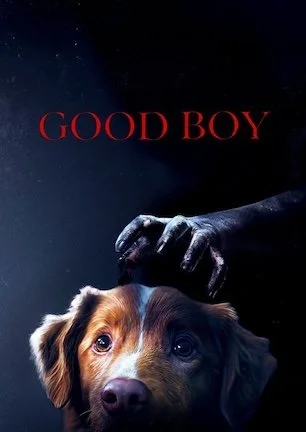Studio: IFC Midnight
Director: Egor Abramenko
Writer: Oleg Malovichko, Andrey Zolotarev
Producer: Mikhail Vrubel, Alexander Andryushchenko, Ilia Stuart, Murad Osmann, Pavel Buria, Vyacheslav Murugov
Stars: Oksana Akinshina, Pyotr Fyodorov, Fyodor Bondarchuk, Anton Vasiliev
Review Score:
Summary:
In Soviet Russia, a controversial psychiatrist must find a way to separate a cosmonaut from a deadly parasitic organism brought back from outer space.
Review:
It bears repeating that enjoyment of any movie can be directly dependent upon expectations. What you want and what you get isn’t always the same thing. A lack of synchronicity between the two can often be attributed to a misalignment of the viewer’s mindset, not necessarily an issue with the movie.
That’s a roundabout way of warning to be careful how you approach “Sputnik,” which also applies to how researchers must treat the dangerous alien organism featured in the film. Anticipate epic sci-fi action and the movie’s dialogue-driven drama certainly won’t slake a thirst for thrills. “Sputnik’s” patient portrait of clashing personalities confronting an unusual problem requires a calmer, more reserved and cerebral perspective on bodily invader-based speculative fiction.
Dispensing with minced words, it would be straightforward to describe “Sputnik” as slow. Now in this case, “slow” is not a couched codeword for “boring” or “uneventful,” even though some viewers will still see it that way. I don’t even mean that “Sputnik’s” pacing moves slowly. Plot progression stays consistently limber and new events occur regularly. In short, things happen.
However, what does take place within each scene unfolds without elevated urgency. When armed soldiers escort someone, they amble casually, without so much as a trot or threateningly brandishing the butt of a rifle. When conversations turn contentious, comments get snippy instead of escalating into heated shouting or shoving matches. Like its setting, “Sputnik” by design is a gloomy endeavor, and a faint heartbeat simply becomes part of that dour DNA.
“Sputnik” takes place in the Soviet Union in 1983. Keeping with common cinematic portrayals of our Cold War comrades, this means there isn’t a smile to be found anywhere, making for characters as chilly as a Siberian summer.
The first of these people is cosmonaut Konstantin. Following an encounter with an unidentified entity in orbit, Konstantin returns to Earth with a dead partner and no memory of happened.
Tatiana wears a scowling frown for different reasons. Her unorthodox manner of treating psychiatric patients earned her a reprimand in front of a review board determined to boot Tatiana out of her profession. Nevertheless, Tatiana’s clinical commitment as a stern practitioner of mental medicine remains as resolute as her defiant stubbornness to kowtow to authority, even in communist Russia.
Unfriendliness increases exponentially with Semiradov, a stereotypically no-nonsense military colonel. He’s as hardened as any American Armed Forces counterpart in a similar position in a similar sci-fi film, i.e. guns first, diplomacy a distant second. To Semiradov, everything looks like a nail because he can only think like a hammer.
Despite Semiradov favoring physical force in the face of adversity, he requires a surgical strike for dealing with Konstantin. Imagine Spider-Man returning from The Beyonder’s Secret Wars with the Venom symbiote inside his body instead of as a second suit of skin. That’s more or less what happens to the cursed cosmonaut. Every night for about 110 minutes, coincidentally the same length as “Sputnik,” Konstantin falls unconscious when an alien creature crawls out of his body to prowl. There’s just enough science behind the symbiote for the situation to sound plausible, or at least plausible enough to buy into the premise. For instance, oxygen in Earth’s atmosphere allows the alien to expand from a large “Jason Goes to Hell” slug to something the size of a domesticated dog that crosses facehugger and queen xenomorph breeds. Whenever the creature comes out, of course it needs to feed. Semiradov has the additional duty of finding a way to safely separate the organism from Konstantin, because their symbiotic relationship makes them codependent. That’s where Tatiana’s expertise comes in.
That summarizes “Sputnik” in about two minutes although as mentioned, the film runs close to two hours. To reiterate, at no time did the movie inspire, much less deserve, an outright yawn. Yet its inherently unhurried nature was felt persistently to the point where I had to pause my screening sporadically. Not out of disinterest, but because I simply needed breaks from the bleakness. The somber Soviet setting, grim-faced characters, and reliance on interpersonal interactions to motivate the movie create a thick atmosphere that’s a lot to breathe in during a singular sitting.
At roughly the one-hour mark, a certain revelation raises the stakes. It’s not a twist, but rather another layer peeled off the mystery, allowing “Sputnik” to fold a little horror into what’s otherwise a long psychological evaluation/medical research procedural. Objectively, there’s nothing technically wrong with the film. Above board acting, clean cinematography, and excellent sound design contribute to an overall look that’s stunning for a relatively Spartan production. Subjectively speaking, this specific story has a harder time broadening its appeal to a wide palate of audience tastes.
Which is why “Sputnik’s” somewhat flat flavor needs a tongue tuned for studious sci-fi as opposed to heart-racing spectacle. The alien gets to go for some gore during what few moments are engineered for shock value. But this isn’t a Syfy-style creature feature intended for popcorn entertainment on a rowdy Saturday night. “Sputnik” stays much more subdued, which in turn makes it a tricky project to pin down in flatteringly fair terms.
Review Score: 55






While the 110-minute runtime could use a trim to maintain more energy, “Redux Redux” is an easy recommend for anyone who enjoys low-key sci-fi.